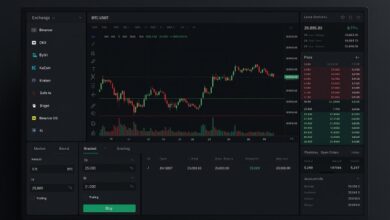The Hidden Psychology Behind Forex Trading: Why Your Mind Matters More Than Your Strategy

The foreign exchange market processes over $7.5 trillion in daily trading volume, making it the largest financial market in the world. Yet despite its massive size and the countless technical indicators available to traders, studies consistently show that approximately 80% of retail forex traders lose money. This paradox raises a crucial question: if the tools and information are readily available, why do so many traders fail?
The answer lies not in the charts or economic calendars, but in the complex psychological battlefield that exists between a trader’s ears. Understanding and mastering trading psychology has become the ultimate differentiator between consistent winners and perpetual losers in the forex market.
The Emotional Rollercoaster of Currency Trading
Forex trading is inherently emotional. Unlike investing in stocks where you might hold positions for months or years, currency traders often make multiple decisions daily, each carrying the potential for immediate profit or loss. This constant decision-making creates a unique psychological environment where emotions can quickly spiral out of control.
Consider the typical journey of a new trader. They enter their first position with confidence, perhaps after reading about what they believe is the best scalping strategy. Initially, they might experience some beginner’s luck, winning a few trades and feeling invincible. This early success often leads to overconfidence, larger position sizes, and increasingly risky behavior.
Then reality strikes. A series of losses occurs, and suddenly the trader finds themselves in unfamiliar emotional territory. Fear creeps in, followed by desperation. They might abandon their trading plan entirely, chasing losses with even larger positions, or conversely, become so paralyzed by fear that they cannot execute trades when opportunities arise.
The Neuroscience of Trading Decisions
Modern neuroscience has revealed fascinating insights into how our brains process trading decisions. When traders experience losses, the same neural pathways that respond to physical pain become activated. This explains why financial losses can feel genuinely painful and why traders often make irrational decisions to avoid or quickly escape this discomfort.
The amygdala, our brain’s alarm system, becomes hyperactive during stressful trading situations. This ancient structure evolved to help our ancestors escape immediate physical threats, but in the modern trading environment, it can trigger fight-or-flight responses that are counterproductive to logical decision-making.
Meanwhile, the prefrontal cortex, responsible for rational thinking and long-term planning, becomes less active under stress. This neurological imbalance explains why even experienced traders can make obvious mistakes during volatile market conditions or after a series of losses.
Common Psychological Traps in Forex Trading
The Revenge Trading Cycle
One of the most destructive psychological patterns in forex trading is revenge trading. After experiencing a significant loss, traders often feel compelled to immediately “get back” at the market. This emotional response leads to impulsive decisions, oversized positions, and typically, even larger losses.
Revenge trading stems from the psychological need to restore one’s ego and sense of control. However, the market doesn’t care about individual trader’s emotions or need for vindication. It simply moves based on supply and demand dynamics, making revenge trading a futile and expensive emotional exercise.
Analysis Paralysis
On the opposite end of the spectrum, some traders become so overwhelmed by the abundance of information and indicators that they struggle to make any decisions at all. They might spend hours analyzing charts, reading economic reports, and following market news, but when it comes time to execute trades, they freeze.
This paralysis often stems from perfectionism and the fear of making mistakes. Traders caught in this trap convince themselves that they need just one more indicator or piece of information before they can make a confident decision. Unfortunately, this mindset prevents them from gaining the practical experience necessary to improve their trading skills.
The Sunk Cost Fallacy
Many forex traders fall victim to the sunk cost fallacy, holding onto losing positions far longer than their trading plan dictates. They rationalize that since they’ve already lost money, they might as well wait a little longer for the position to turn profitable.
This psychological bias can be particularly dangerous in leveraged forex trading, where small movements can result in significant losses. Professional traders understand that each trading decision should be made independently, regardless of previous investments or losses.
Building Psychological Resilience
Developing Emotional Awareness
The first step in overcoming psychological barriers is developing emotional awareness. Successful traders learn to recognize their emotional states and understand how these emotions influence their decision-making process. This might involve keeping a trading journal that tracks not only trades and outcomes but also emotional states and psychological observations.
Some traders find it helpful to rate their emotional state on a scale of 1-10 before executing trades. If they notice they’re feeling particularly anxious, angry, or overconfident, they might choose to step away from the markets until they return to a more balanced emotional state.
Creating and Following a Trading Plan
A well-defined trading plan serves as an anchor during emotional turbulence. This plan should include entry and exit criteria, risk management rules, and position sizing guidelines. More importantly, it should be developed during calm, rational moments when emotions aren’t clouding judgment.
The key to an effective trading plan is specificity. Rather than vague statements like “I’ll cut losses quickly,” the plan should include exact criteria such as “I will close any position that moves against me by 2% of my account balance.”
Implementing Proper Risk Management
Perhaps no aspect of trading psychology is more important than risk management. Knowing that each trade represents only a small percentage of total capital helps traders maintain emotional equilibrium during both winning and losing streaks.
The general rule among professional traders is to never risk more than 1-2% of total capital on any single trade. This might seem conservative to new traders eager for quick profits, but it’s this conservative approach that allows traders to survive inevitable losing streaks and continue trading another day.
The Role of Mindfulness in Trading
Mindfulness practices have gained popularity among professional traders as a method for maintaining psychological balance. These practices help traders stay present and focused, rather than getting caught up in regrets about past trades or anxiety about future outcomes.
Simple mindfulness techniques, such as taking deep breaths before executing trades or practicing brief meditation sessions between trading sessions, can help maintain the mental clarity necessary for consistent decision-making.
Technology and Trading Psychology
Modern trading platforms and tools can either help or hinder psychological well-being, depending on how they’re used. Features like stop-losses and take-profit orders can help remove emotion from trade management, while real-time profit and loss displays might increase anxiety and lead to impulsive decisions.
Some traders find it helpful to hide their profit and loss displays during active trading, focusing instead on whether their trades are following their predetermined plan. Others use automated trading systems to remove emotional decision-making from certain aspects of their trading strategy.
The Path Forward
Mastering forex trading psychology is not a destination but an ongoing journey. Even experienced traders continue to work on their psychological discipline, understanding that the markets will always present new challenges and emotional tests.
The most successful traders view psychological development as equally important as technical analysis or fundamental research. They invest time in understanding their own behavioral patterns, developing coping strategies for stress, and continuously refining their approach to emotional management.
Success in forex trading ultimately comes down to consistency, discipline, and the ability to make rational decisions under pressure. While technical knowledge and market understanding are important, it’s the psychological component that often determines whether a trader joins the small percentage of consistent winners or becomes another casualty of the markets’ unforgiving nature.
The forex market will continue to present opportunities for those prepared to navigate not just its technical complexities, but also the psychological challenges that come with putting real money at risk in an uncertain environment. Those who master both aspects of trading position themselves for long-term success in this demanding but potentially rewarding field.



